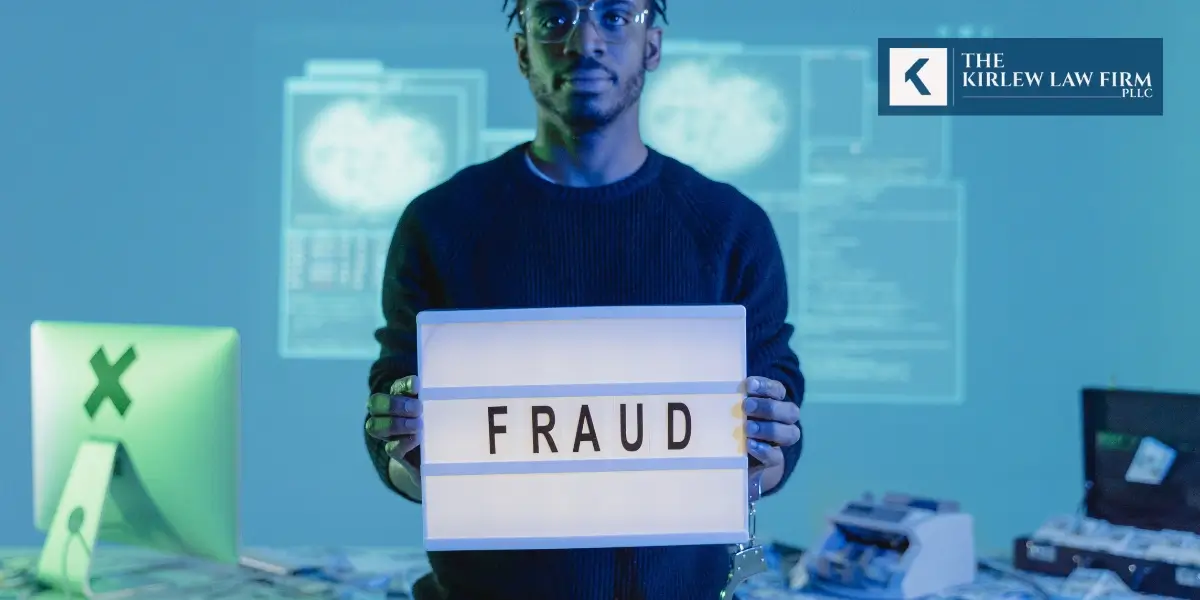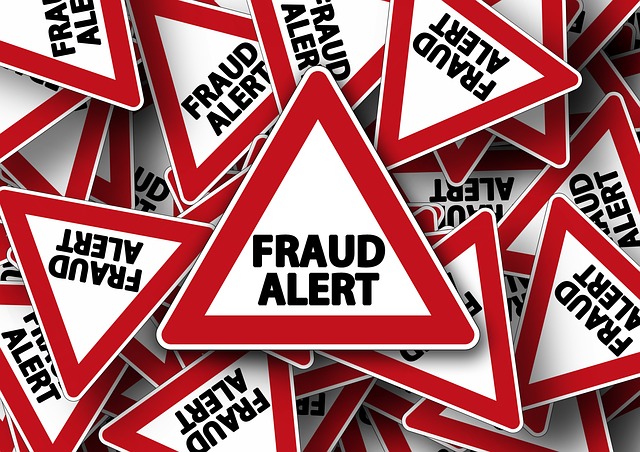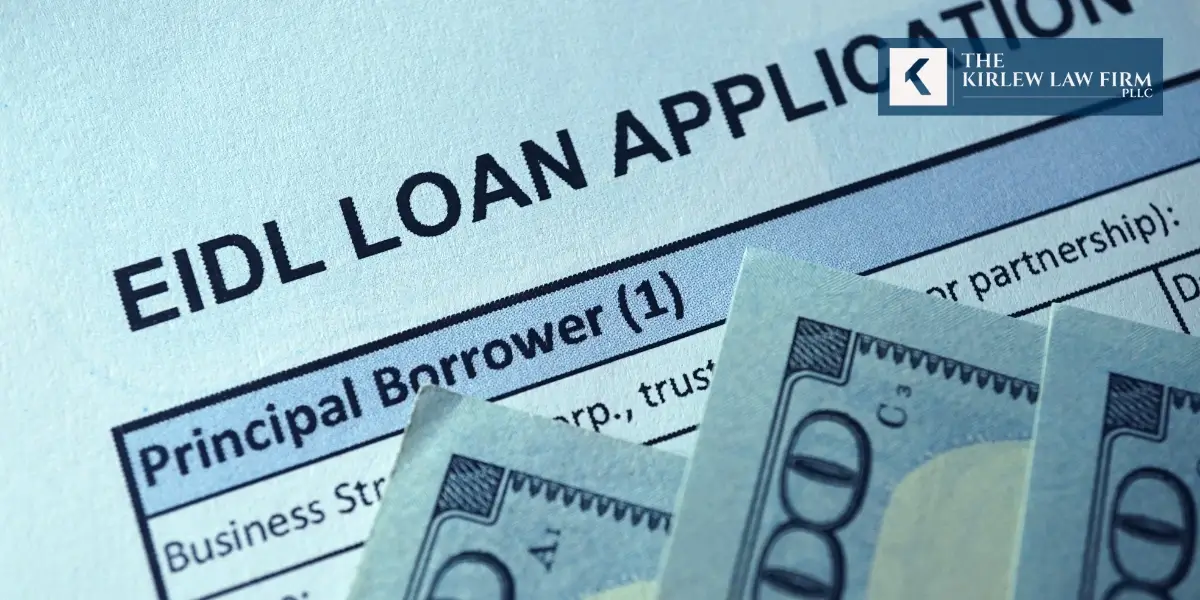A: The SBA does not forgive EIDL loans under normal circumstances. These loans are intended to be repaid in full, with fixed interest and long terms. While some COVID-era relief programs included forgiveness, EIDL loans were excluded. Borrowers are expected to follow repayment plans. Failing to do so may lead to collections, damage to credit, or possible legal action by the government.
Miami SBA EIDL Loan Fraud Lawyer
Miami SBA EIDL Loan Fraud Attorney

SBA (Small Business Administration) has issued millions of loans to American businesses over the decades since its creation. During the coronavirus pandemic, there were a special group of loans issued based upon the uniqueness of that crisis. Some loan borrowers ended up facing federal criminal charges that required help from a Miami SBA EIDL loan fraud lawyer.
These loans were called Economic Injury Disaster Loans (EIDL) and approved to tens of thousands of businesses to help them fund their regular business expenses during the economic downturn that resulted from the pandemic.
The requirement of the SBA is that the loans be used strictly for business purposes. However, investigations are turning up evidence that these loans were used to purchase real estate, luxury cars and watches, jewelry and fund lavish vacations. If you are facing SBA fraud allegations or anticipate such an investigation, contact Brian Kirlew, Esq. today to discuss your options. Call us at (305) 521-0484 or contact us online
Navigating the SBA Loan Fraud Maze
SBA loan fraud occurs when businesses or individuals obtain funds from the SBA for legitimate reasons, but then use the funds for unapproved expenditures. The loans are supposed to fund regular business operations like commercial lease payments, salaries, taxes, and operational costs associated with running a small business. The funds approved for EIDL loans were issued directly by the department of treasury and is repayable directly to the SBA.
The SBA also issues loans unrelated to the pandemic and has done so for many decades. To facilitate access to these funds, the SBA partners with several banks and lenders and doesn’t lend money directly. The SBA investigates these applications to see if there are material misrepresentations. These investigations often turn up as federal criminal offenses against the business owner. It is common to see individuals charged with wire fraud, money laundering and conspiracy relating to ill-gotten SBA loans.
Typical scenarios of SBA loan fraud include:
- Providing false financial information to qualify for the loan
- Using stolen personal information to apply for the loan
- Loan stacking without disclosing the same
- Lying about the business details like size or nature
- Spending loan funds for unauthorized purposes
- Collateral fraud to secure the desired loan amount
Each of these is a serious allegation in Miami and can result in federal charges, forfeiture of assets and prison time. There are also hefty fines, loss of professional licenses and being permanently denied access to banking services and credit. The accusations can also tarnish your personal and professional image, affecting future opportunities. It is crucial to seek expert assistance and protect your rights.
Federal Loan Fraud Statistics and Recent News Coverage
Florida continues to be an area of focused investigation into federal loan fraud. Federal investigations into pandemic loan fraud have uncovered widespread abuse, particularly in South Florida.
In one high-profile case, a former SBA employee in Hialeah was sentenced on June 13, 2025, to 54 months in federal prison and ordered to pay nearly $1.3 million in restitution. The individual personally obtained over $230,000 and was linked to a broader scheme involving more than $837,000 in fraudulent relief loans.
Since the beginning of the pandemic-era loan programs, the Southern District of Florida has aggressively pursued offenders, charging over 185 people in fraud schemes valued at more than $220 million. These cases include business owners, public employees, and even law enforcement officers.
Nationwide, the Small Business Administration’s Office of Inspector General (SBA OIG) estimates that over $200 billion in potentially fraudulent loans were disbursed through the Paycheck Protection Program (PPP) and Economic Injury Disaster Loan (EIDL) program. That figure represents roughly 17% of the total pandemic relief distributed, with EIDL-related fraud making up around $86 billion.
Understanding the Federal Focus on Pandemic Loan Fraud
The scale of COVID-19 financial relief was unprecedented for its time. As news of large numbers of fraudulent loans became more widespread, agencies like the Office of Inspector General and the Department of Justice created task forces specifically to investigate pandemic-related loan misuse.
These investigations have led to thousands of criminal charges nationwide. The government has prioritized enforcement against individuals who allegedly exploited the system for personal gain. This is especially true for those accused of using funds to purchase luxury items.
Miami has seen several high-profile prosecutions tied to EIDL and PPP loans. These cases serve as a warning that federal agencies are aggressively pursuing white-collar crimes involving SBA programs. If you’ve received a target letter, audit notice, or informal inquiry from a federal agency, it’s important to retain legal counsel before responding.
Signs That You May Be Under Investigation
Many SBA loan fraud cases begin with a quiet review of your application materials. An investigation can go on for some time before you are made aware. You may receive a call from a federal agent, a subpoena for records, or a notice of a civil audit.
These are often signs that a criminal investigation is underway. One sign could involve people associated with you being questioned by federal agents. The government may freeze assets, contact business partners, or review bank records. Cooperation without counsel can result in unintentional self-incrimination.
Investigation and Prosecution
SBA loan frauds are taken seriously. Investigations are carried out by agencies like the FBI (Federal Bureau of Investigation), DOJ (Department of Justice), and OIG (Office of Inspector General). These extensive investigations involve financial audits, forensic accounting, and more. The inquiry begins with an audit analyzing the suspicious activity. If sufficient evidence can be found, the case is referred to federal prosecutors, and the defendant can encounter multiple charges with penalties designed to deter fraud and punish offenders.
The Kirlew Law Firm, PLLC, helps clients prepare for each phase of this process, from pre-indictment investigations to federal criminal trials. Our team examines financial documents, challenges improperly obtained evidence, and works with forensic scientists to counter false claims of fraud.
Early legal intervention is critical when federal agencies begin circling your case. We encourage prospective clients to read our favorable reviews.
Potential Consequences of a Loan Fraud Conviction in Miami
A conviction for federal loan fraud in Miami can lead to immediate and life-altering penalties. Defendants may face years in federal prison, often starting with detention at FDC Miami on NE 4th Street.
Sentences can range from probation and hefty fines to over 20 years in prison, depending on the scale of the fraud, the amount misused, and whether wire fraud or money laundering is also charged. In many cases, the courts will order the convicted offender to pay restitution, which could include interest accrued due to misuse and costs related to recovering the funds.
Cases are prosecuted at the Wilkie D. Ferguson Jr. U.S. Courthouse in downtown Miami, just blocks from Brickell and Overtown. Restitution orders and asset forfeiture are common, with homes in Coral Gables or cars parked along Calle Ocho often seized.
Convictions can also bar you from obtaining future government assistance or credit. Even after a convicted individual’s release, probation can include monitoring and restrictions on financial activity. For anyone in the financial or banking sector, this would effectively mean the end of their career.
The Need for Experienced Defense

The complexities and severe consequences of SBA loan fraud allegations necessitate the expertise of skilled defense attorneys. Since SBA loan fraud is subject to federal penalties, you need an expert attorney specializing in these cases to navigate the allegations and mitigate against potential consequences. Penalties might include up to 20 years of imprisonment per count charged, along with steep fines.
At Kirlew Law Firm, we have helped numerous clients in South Florida with our knowledge, strategic planning, and advocacy to obtain the best possible outcome in these cases. If you encounter any SBA loan fraud charges, we can offer comprehensive defense strategies, including:
- Detailed case evaluation to identify discrepancies in the prosecution’s case
- Skilled legal expertise to build a strong defense
- Working to reduce the charges through comprehensive mitigation efforts
- Initiating negotiations on your behalf to lower financial penalties
- Safeguarding your reputation and minimizing public exposure
SBA loan fraud charges can be overwhelming and complex. One of the possible defenses is to prove that the defendant didn’t intentionally provide false information to get the loan. Your lawyer may present evidence demonstrating there’s no intention to commit fraud. In every white-collar prosecution, it is essential for the defense to present a credible alternative theory to explain the government’s evidence.
You need a capable SBA loan fraud attorney because they can rightfully take you through the process and establish a robust defense. When you partner with us, we can provide the necessary support and guidance for fair treatment and vigorous representation. You will find The Kirlew Law Firm team standing by your side to help you make informed decisions at every stage of the case.

FAQs
Q: How Long Can You Go to Jail for SBA Loan Fraud?
A: SBA loan fraud is a federal offense and can result in a prison sentence of several years. The exact term depends on the nature of the fraud, the amount involved, and whether it involved identity theft or wire fraud. Federal agents have been especially harsh on fraud cases where defendants spent the money on personal luxury items. A conviction may lead to an order to pay restitution.
Q: Can You Be Prosecuted for Lying on an EIDL Loan Application?
A: Yes, lying on an EIDL application can lead to criminal prosecution. Falsifying any government document is a serious offense. Submitting false information to the SBA is a federal crime, and the government has actively pursued those who inflated revenues, misstated employee counts, or concealed criminal histories.
Charges may include wire fraud or false statements. Conviction can result in prison, fines, and repayment. Even unintentional errors may be scrutinized in investigations.
Q: Can EIDL Loans Be Bankrupted?
A: EIDL loans are generally not dischargeable in bankruptcy if they are backed by a personal guarantee or collateral. In many cases, these loans are treated as nondischargeable government debts. Bankruptcy courts will review the loan documents and how the funds were used. If fraud is suspected, the debt is almost always exempt from being discharged through bankruptcy proceedings.
Contact The Kirlew Law Firm, PLLC, for Expert Legal Assistance
SBA loan fraud charges can bring intense federal scrutiny, financial penalties, and the threat of incarceration. At The Kirlew Law Firm, PLLC, we have represented clients in some of the most complex white-collar cases in South Florida.
Founding attorney Brian Kirlew, Esq., has handled thousands of criminal cases, earning a reputation for precision, discretion, and aggressive defense. He was recognized for his dedication to justice and exceptional legal performance with the Outstanding Young Lawyer Award from the Miami Chapter of the Florida Association of Criminal Defense Lawyers in 2012. Brian has also been selected as a Super Lawyer for criminal defense, 2016 to present, demonstrating excellence in the legal field.
If you are facing SBA loan fraud charges, it is important to act quickly. Contact Brian Kirlew, Esq. and the Kirlew Law Firm today to schedule a consultation. Let us be your steadfast ally in this challenging time. Call (305) 521-0484 or contact us online.
Contact a Miami White Collar Criminal Attorney today!
If you are being investigated for a White Collar crime at the state or federal level (or both), the sooner you get a qualified attorney on your side to protect your rights, the better. Brian Kirlew, Esq. is experienced and skilled at handling these complex and sensitive matters, and is here to represent you in court. Our criminal defense attorneys in Miami are proud to offer you a free phone consultation to ensure that we can best serve you. Contact us immediately to get started.

